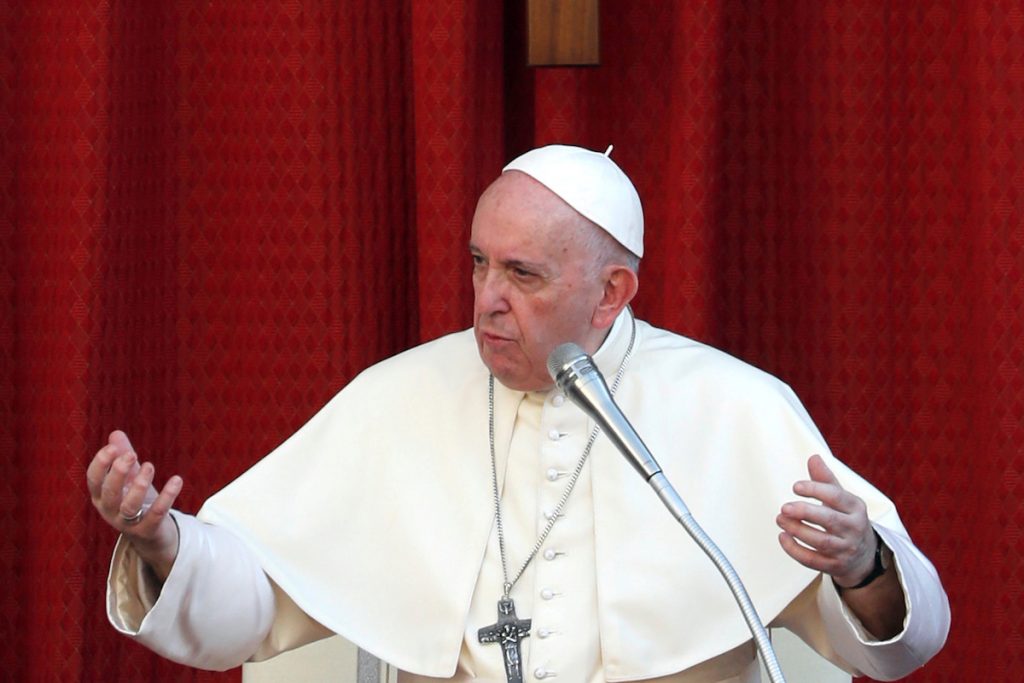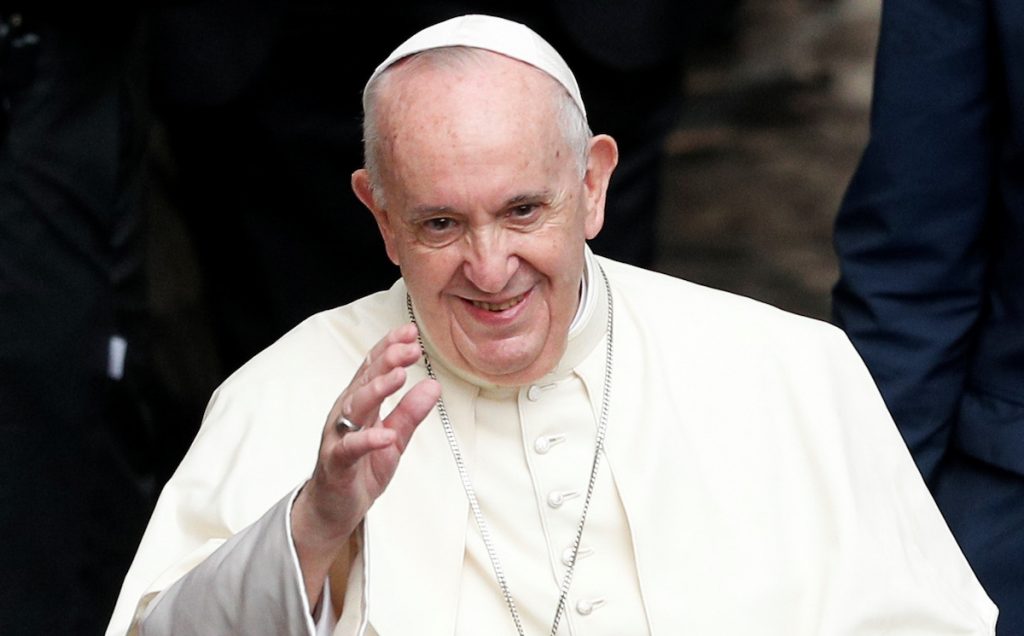
Pope Francis has called on world leaders to be “especially attentive” to children who have been denied their fundamental rights amidst the coronavirus pandemic.
“We cannot fail to acknowledge the devastating effects of the COVID-19 crisis on children, including unaccompanied young migrants and refugees,” said the pope in his address before the UN General Assembly of Sept. 25.
“Millions of children are presently unable to return to school,” he said. “In many parts of the world, this situation risks leading to an increase in child labor, exploitation, abuse and malnutrition,” added the pontiff.
In the Philippines, 280,000 children have become victims of cybersex trafficking between March and May, about four times the rate last year, making it the hotspot for online child pornography.
The United Nations has also recorded an estimated 12 million girls below 18 years old who are wed every year.
The UN has cautioned that an additional 13 million child marriages will happen in the next decade if the economic and social impacts of the COVID-19 pandemic are not properly addressed.
Pope Francis also pointed out that violence against children, including child abuse and pornography, has “dramatically increased.”
A helpline for children in India has received 92,000 calls in just 11 days to ask for security from abuse and violence during the government-imposed lockdown due to the pandemic.
Pope Francis called on authorities to be attentive to children, especially those who were particularly discarded of their right to life and to schooling.
He cited the call of Pakistani education advocate Malala Yousafzai who said that “one child, one teacher, one book and one pen can change the world.”

Warning against abortion, rights abuses
In his message to the UN General Assembly, Pope Francis denounced countries and international institutions that promote abortion as an “essential service” in responding to the pandemic.
“It is troubling to see how simple and convenient it has become for some to deny the existence of a human life as a solution to problems that can and must be solved for both the mother and her unborn child,” said the pontiff.
The pope also noted the dilemma with modern society’s “throw away” culture, or the overconsumption and overproduction of disposable goods, resulting in environmental issues.
He defined “throwaway culture” as a “gross lack of respect for human dignity, the promotion of ideologies with reductive understandings of the human person, a denial of the universality of fundamental human rights, and a craving for absolute power and control that is widespread in today’s society.”
The pope also expressed “pain” in seeing that human rights continue to be violated with impunity, which offers a “frightening picture of a humanity abused, wounded, deprived of dignity, freedom and hope for the future.”
He said that Christians are also part of the “lengthy” list of such violations, and pointed out “how many of our brothers and sisters throughout the world are suffering, forced at times to flee from their ancestral lands, cut off from their rich history and culture” because of their religious beliefs.
“We should also admit that humanitarian crises have become the status quo, in which people’s right to life, liberty and personal security are not protected,” Pope Francis said.
Appeal to world leaders
In his speech, the pope appealed to political leaders and the private sector to “spare no effort” in ensuring access to COVID-19 vaccines and to the essential technologies needed to care for the sick.
“If anyone should be given preference, let it be the poorest, the most vulnerable, those who so often experience discrimination because they have neither power nor economic resources,” he said.
The pope also did not forget about economic injustices and urged the international community that “now is a fitting time to renew the architecture of international finance”.
Pope Francis said that as the world continues to be impacted by the COVID-19 pandemic, it is also being given “a time of choosing.”
“It can represent a concrete opportunity for conversion, for transformation, for rethinking our way of life and our economic and social systems, which are widening the gap between rich and poor based on an unjust distribution of resources,” he said.
“On the other hand, the pandemic can be the occasion for a ‘defensive retreat’ into greater individualism and elitism,” he warned.
“The pandemic has shown us that we cannot live without one another, or worse still, pitted against one another,” added the pontiff.
“Let us make good use of [the UN] in order to transform the challenge that lies before us into an opportunity to build together, once more, the future we all desire,” said Pope Francis.
The Holy See was recognized as a non-member state by the United Nations in 1964, and maintains a permanent observer mission.
As a permanent observer, it has the right to vote in various UN conferences and to participate in the General Assembly discussions and consensus agreements.
Source: Licas Philippines
0 Comments